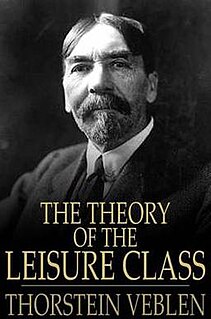Business ethics is a form of applied ethics or professional ethics, that examines ethical principles and moral or ethical problems that can arise in a business environment. It applies to all aspects of business conduct and is relevant to the conduct of individuals and entire organizations. These ethics originate from individuals, organizational statements or from the legal system. These norms, values, ethical, and unethical practices are the principles that guide a business. They help those businesses maintain a better connection with their stakeholders.
Social science is a category of academic disciplines, concerned with society and the relationships among individuals within a society. Social science as a whole has many branches. These social sciences include, but are not limited to: anthropology, archaeology, communication studies, economics, history, musicology, human geography, jurisprudence, linguistics, political science, psychology, public health, and sociology. The term is also sometimes used to refer specifically to the field of sociology, the original "science of society", established in the 19th century. For a more detailed list of sub-disciplines within the social sciences see: Outline of social science.

Political economy is the study of production and trade and their relations with law, custom and government; and with the distribution of national income and wealth. As a discipline, political economy originated in moral philosophy, in the 18th century, to explore the administration of states' wealth, with "political" signifying the Greek word polity and "economy" signifying the Greek word "okonomie". The earliest works of political economy are usually attributed to the British scholars Adam Smith, Thomas Malthus, and David Ricardo, although they were preceded by the work of the French physiocrats, such as François Quesnay (1694–1774) and Anne-Robert-Jacques Turgot (1727–1781).

An organization or organisation is an entity comprising multiple people, such as an institution or an association, that has a particular purpose.

An academic discipline or field of study is a branch of knowledge, taught and researched as part of higher education. A scholar's discipline is commonly defined by the university faculties and learned societies to which they belong and the academic journals in which they publish research.
This Index of ethics articles puts articles relevant to well-known ethical debates and decisions in one place - including practical problems long known in philosophy, and the more abstract subjects in law, politics, and some professions and sciences. It lists also those core concepts essential to understanding ethics as applied in various religions, some movements derived from religions, and religions discussed as if they were a theory of ethics making no special claim to divine status.

Institutions, according to Samuel P. Huntington, are "stable, valued, recurring patterns of behavior". Further, institutions can refer to mechanisms of social order, which govern the behaviour of a set of individuals within a given community. Moreover, institutions are identified with a social purpose, transcending individuals and intentions by mediating the rules that govern living behavior.. According to Geoffery M. Hodgson, it is misleading to say that an institution is a form of behavior. Instead, Hodgson states that institution are “integrated systems of rules that structure social interactions”.
Socioeconomics is the social science that studies how economic activity affects and is shaped by social processes. In general it analyzes how societies progress, stagnate, or regress because of their local or regional economy, or the global economy. Societies are divided into 3 groups: social, cultural and economic.

The Theory of the Leisure Class: An Economic Study of Institutions (1899), by Thorstein Veblen, is a treatise on economics and a detailed, social critique of conspicuous consumption, as a function of social class and of consumerism, derived from the social stratification of people and the division of labour, which are the social institutions of the feudal period that have continued to the modern era.
Institutionalism may refer to:
Articles in economics journals are usually classified according to the JEL classification codes, a system originated by the Journal of Economic Literature. The JEL is published quarterly by the American Economic Association (AEA) and contains survey articles and information on recently published books and dissertations. The AEA maintains EconLit, a searchable data base of citations for articles, books, reviews, dissertations, and working papers classified by JEL codes for the years from 1969. A recent addition to EconLit is indexing of economics-journal articles from 1886 to 1968 parallel to the print series Index of Economic Articles.
Institutional analysis is that part of the social sciences which studies how institutions—i.e., structures and mechanisms of social order and cooperation governing the behavior of two or more individuals—behave and function according to both empirical rules and also theoretical rules. This field deals with how individuals and groups construct institutions, how institutions function in practice, and the effects of institutions on each other, on individuals, societies and the community at large.
The economics of religion concerns both the application of economic techniques to the study of religion and the relationship between economic and religious behaviours. The relationship between religion and economic behaviour was first identified by Max Weber who attributed the modern advent of capitalism to the protestant reformation. Adam Smith laid the foundation for economic analysis for religion in The Wealth of Nations stating religious organisations are subject to market forces, incentive and competition problems like any other sector of the economy. Empirical work examines the causal influence of religion in microeconomics to explain individual behaviour and in the macroeconomic determinants of economic growth. Religious economics is a related subject sometimes overlapping or conflated with the economics of religion.
The following outline is provided as an overview of and topical guide to ethics:
Meir Tamari is an economist and author whose work is in the field of Jewish business ethics. He was among the first individuals to teach university courses, write scholarly works, and establish a study center in this field.
The following outline is provided as an overview of and topical guide to economics:
The following outline is provided as an overview of and topical guide to social science:

Janet Tai Landa is a Canadian economist, researcher and professor at York University, Toronto. She teaches the law and economics of public choice to undergraduate and graduate students. The aim of her research, for more than two decades, has been the law and economic analysis of legal institutions including culture - she investigated how the social order is achieved through social norms that are embodied in ethnic commerce networks and the exchange of gifts. She published numerous research papers on the trust, ethnicity and identity of Chinese merchants in Southeast Asia, which have been the central theme of her work on the "economy of identity." Landa’s work had been praised as an important contribution to the new institutional economics literature by Journal of Institutional and Theoretical Economics. Landa is also the founder and chief editor of Bioeconomics Journal, an international research journal that integrates biology into economics, a journal she launched in 1999 at Kluwer Academic Publishers and now published by Springer.






